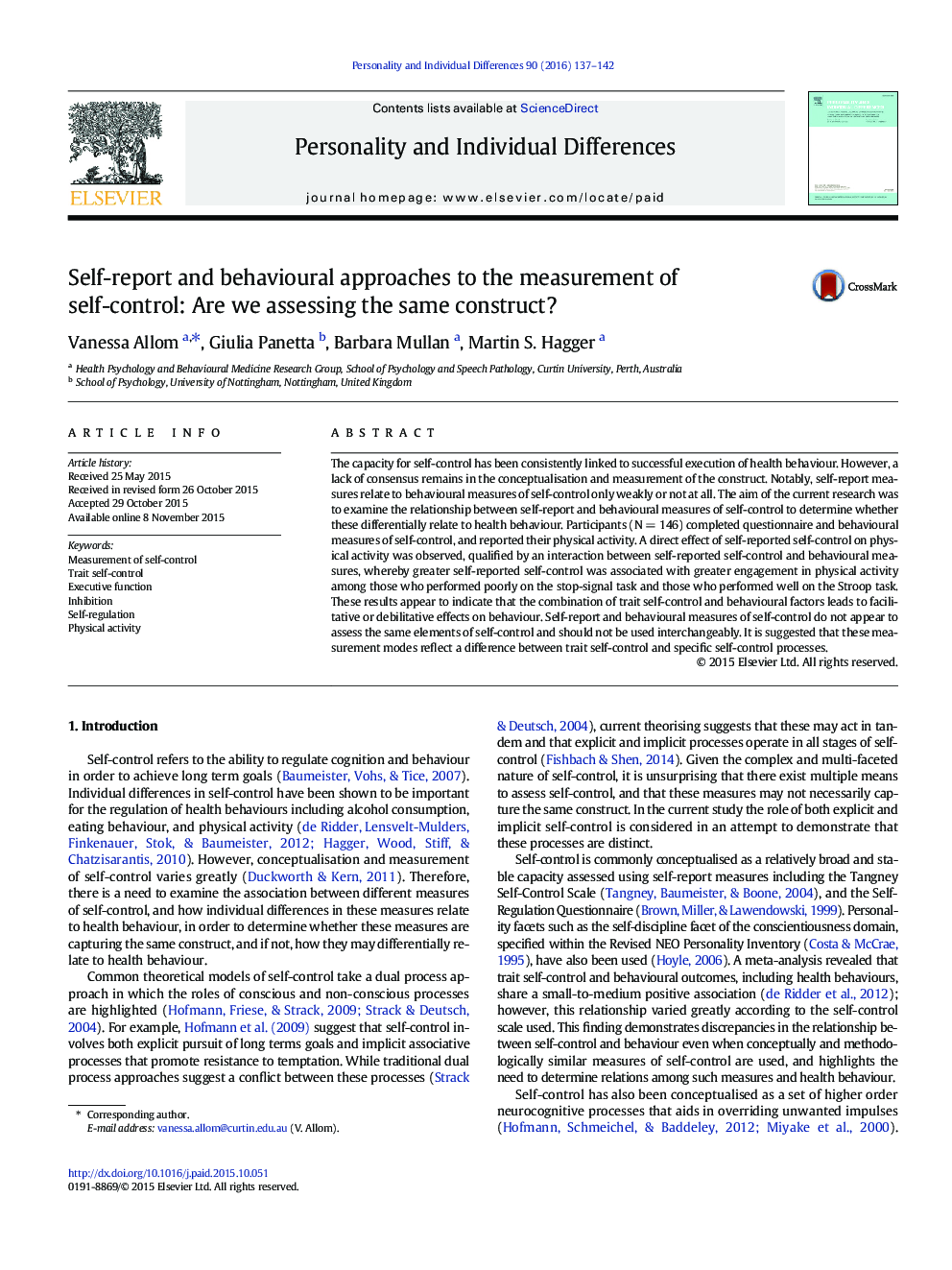| Article ID | Journal | Published Year | Pages | File Type |
|---|---|---|---|---|
| 889839 | Personality and Individual Differences | 2016 | 6 Pages |
•Self-report and behavioural measures of self-control are not often related.•Examining the association between measures and health behaviour may clarify why.•Self-report measures directly relate to health behaviour and assess trait self-control.•Behavioural measures appear to assess specific self-control processes.•The interaction between the two supports dual-processes operating in tandem.
The capacity for self-control has been consistently linked to successful execution of health behaviour. However, a lack of consensus remains in the conceptualisation and measurement of the construct. Notably, self-report measures relate to behavioural measures of self-control only weakly or not at all. The aim of the current research was to examine the relationship between self-report and behavioural measures of self-control to determine whether these differentially relate to health behaviour. Participants (N = 146) completed questionnaire and behavioural measures of self-control, and reported their physical activity. A direct effect of self-reported self-control on physical activity was observed, qualified by an interaction between self-reported self-control and behavioural measures, whereby greater self-reported self-control was associated with greater engagement in physical activity among those who performed poorly on the stop-signal task and those who performed well on the Stroop task. These results appear to indicate that the combination of trait self-control and behavioural factors leads to facilitative or debilitative effects on behaviour. Self-report and behavioural measures of self-control do not appear to assess the same elements of self-control and should not be used interchangeably. It is suggested that these measurement modes reflect a difference between trait self-control and specific self-control processes.
